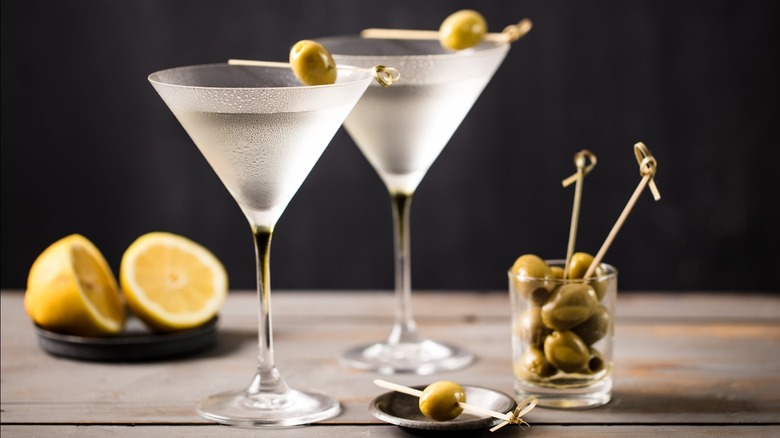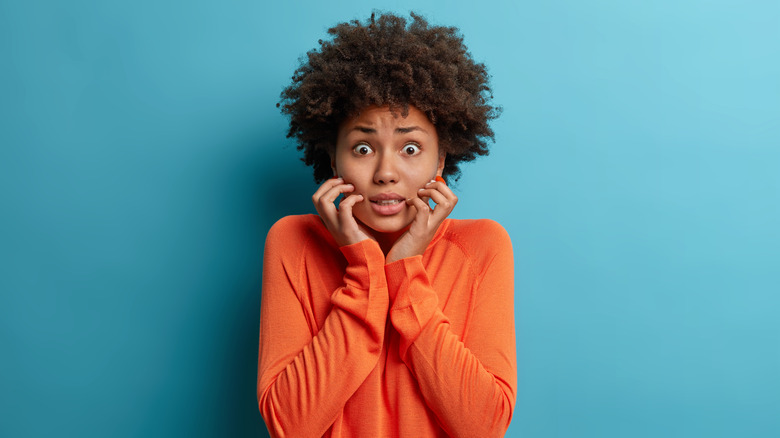The Reason You May Be Afraid Of Alcoholic Drinks
Although classics like the martini and perfectly roasted chicken that hasn't changed much over the years, it's an exciting time for foodies. Food and beverages have become equal parts art and nourishment, and we're enjoying all of its pomp and circumstance in restaurants and our home kitchens. According to the BBC, all of those mouth-watering social media posts from our "friends" (or whoever the algorithm deems is important to us) affect what we want to eat and cook.
Busy American families had moved away from long family meals to accommodate everyone's schedule (work, sports, clubs). This was represented by all the articles and cooking shows featuring quick and easy recipes. That trend shifted during the pandemic, when the family time was plenty and home cooks had the time to up their game with recipes such as sourdough landscape focaccia (I'm guilty). Mixologists have seen the same trend for 2022, with over-the-top cocktails featuring slushy foams and tiki-inspired accessories. And amateur mixologists have taken over the internet to showcase and compare their creations as alcohol sales spiked 14% during the pandemic (per USA Today).
While we need to eat to survive, a survey performed by the CDC estimated that about one-third of Americans don't drink alcohol. Aside from alcoholism, other reasons people may not drink include medical conditions, pregnancy, religion, culture, or just personal preference. There is, however, a severe and lesser-known concern called methyphobia, which may be the reason.
What is methyphobia?
According to Tranceform Psychology, methyphobia is the fear of drinking alcohol. Dr. Emily Roberts, psychotherapist and author of "Express Yourself: A Teen Girl's Guide to Speaking Up and Becoming Who You Are," explains that methyphobia and other anxiety-related disorders can develop after a person has a negative experience associated with, in this case, alcohol. Fear of alcohol could develop if a person had alcohol poisoning or perhaps something traumatic happened while drinking, so they associate alcohol with that experience.
Phobias can manifest physically with an increased heart rate, hyperventilation, sweating, and trembling. People with phobias can feel helpless and constantly worry they may be triggered. Although these fears are irrational, they can interfere with daily routines and affect a person's relationships. People may avoid situations where people drink alcohol to cope with their phobia. That may include not eating out or attending parties, per the Mayo Clinic.
Food phobias are called cibophobias. And as outlandish as they may sound to some, there are quite a few, and they should be taken seriously. Lachanophobia is the fear of vegetables. Some people fear chocolate or cocoa, which is known as xocolatophobia. And although everyone needs a break from cooking now and then, some people have mageirocophobia, or the fear of cooking. Anyone experiencing anxiety-related symptoms is advised to seek professional help from a doctor who can help get their life back under control using lifestyle changes, medications, talk therapy, and coping strategies.

